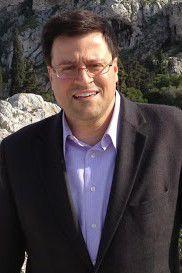
FAITH SCENE: Regarding wealth, ‘Now what? or What now?’
Journal Scene – 22/9/19
This article was first published in Journal Scene
Harvard University has one of the largest endowments of any institution of higher learning in the world.
An interesting apocryphal story that is told about its history of endowment is that one of its highly successful endowment investment advisers had a basic two-rule principle about where and how advice should be sought for its strategies.
It went something like this: “Rule number one: Never ask anyone in the economics department for investment advice. Rule number two: Never ask anyone in the business department for financial advice.”
Do we really trust the people who are supposed to be “in the know” to help guide us? The above story would indicate not so much as we would like to think, for in a little bit of humor, there lies a lot of truth.
Jesus taught about the proper disposition one is to have about money and material goods more than any other topic in the New Testament.
We are given example after example in the scriptures of what it means to be a good steward of what God has entrusted to us.
This concept of “oikonomia” (Greek word for “stewardship”) permeates His central teaching of the arrival of the Kingdom of God.
It is interesting to note that Jesus did not advise His followers to seek out the counsel on such matters of the religious leaders of His time. In fact, He tells His followers to be wary not to act as the hypocrites in the temple.
The fourth century Church Father, St. John Chrysostom, explains in his Biblical commentary in a series of sermons about the Gospel of Luke 16 and the parable of the rich man and Lazarus, titled “On Wealth and Poverty,” that how we view and what we do with our resources is what matters.
Wealth is neither good nor evil; rather, it is our disposition toward it that makes the difference. We can tithe as the rich man in the parable, but not do it with the right disposition and thus it is meaningless.
Chrysostom develops this thought even further in his book “On Repentance and Almsgiving” where he incorporates acts of stewardship in relationship to “tapeinosis” (humility) and “metanoia” (repentance).
He writes, “Our money is Our Lord’s no matter how we may have gathered it.” Here in this commentary, he is simply amplifying the teachings of Jesus and the entire Bible on the subject.
Now what does this mean for us in 2019? Well, its meaning is deep and varied for each person. Yet, from the Christian perspective, the singular reality remains true for each person: God owns everything.
The material goods that we have been blessed with are not to become idols taking the place of God. They are tools to be used by us for His glorification.
It seems that the “ME” generation has given rise to the “MY” generation. Just look at the over emphasis and indulgence that many people lavish their homes with, the vehicles they drive, the schools that they send their children, the vacations they go on, the sporting events they attend, and all the items in the stores that now they don’t even have to physically frequent because they deliver purchases to their front doorstep with just a click of a mouse.
Now, this is not a diatribe against any of these wonderful innovations and luxuries in life. It is not.
What I am merely pointing out is the over emphasis on these things in comparison to one’s focus on the Kingdom of God. Chrysostom highlights this when he writes, “You fret over which carpeting to put on your floors, yet you ignore your brother who is starving.”
In a recent conversation that I had with a bishop, he told me that he thought many of the reasons why people have left the church lie in the hierarchy’s and clergy’s failure to express the love of God in a nonjudgmental way.
With his statement, he hearkens us back to the Harvard’s endowment adviser’s “two rules” of whom not to seek out for advice when the ones who are supposed to know, don’t know.
Though there is validity in his statement, I don’t know if that contains the entirety of the situation or not. What I can say is this, many of us have been so very blessed so unworthily so in our lives that it seems utter nonsense to get caught up with just replacing God with things and only paying Him lip service if we do even that.
If left to our own devices, the only question dripping with emptiness we are unfortunately left with is, “Now what?”
Yet, Jesus tells us that He has rendered that question meaningless by His resurrection. We only need to want what He has to offer. Then, He turns that question around to “What now?” which will lead us to greater purpose in serving Him.
John G. Panagiotou is a theologian, scholar, and writer and is a professor at Cummins Memorial Theological Seminary in Summerville, where he also serves as liaison officer to the Seminary President.


285048 679083This internet site is my aspiration, quite superb style and Perfect articles. 762989